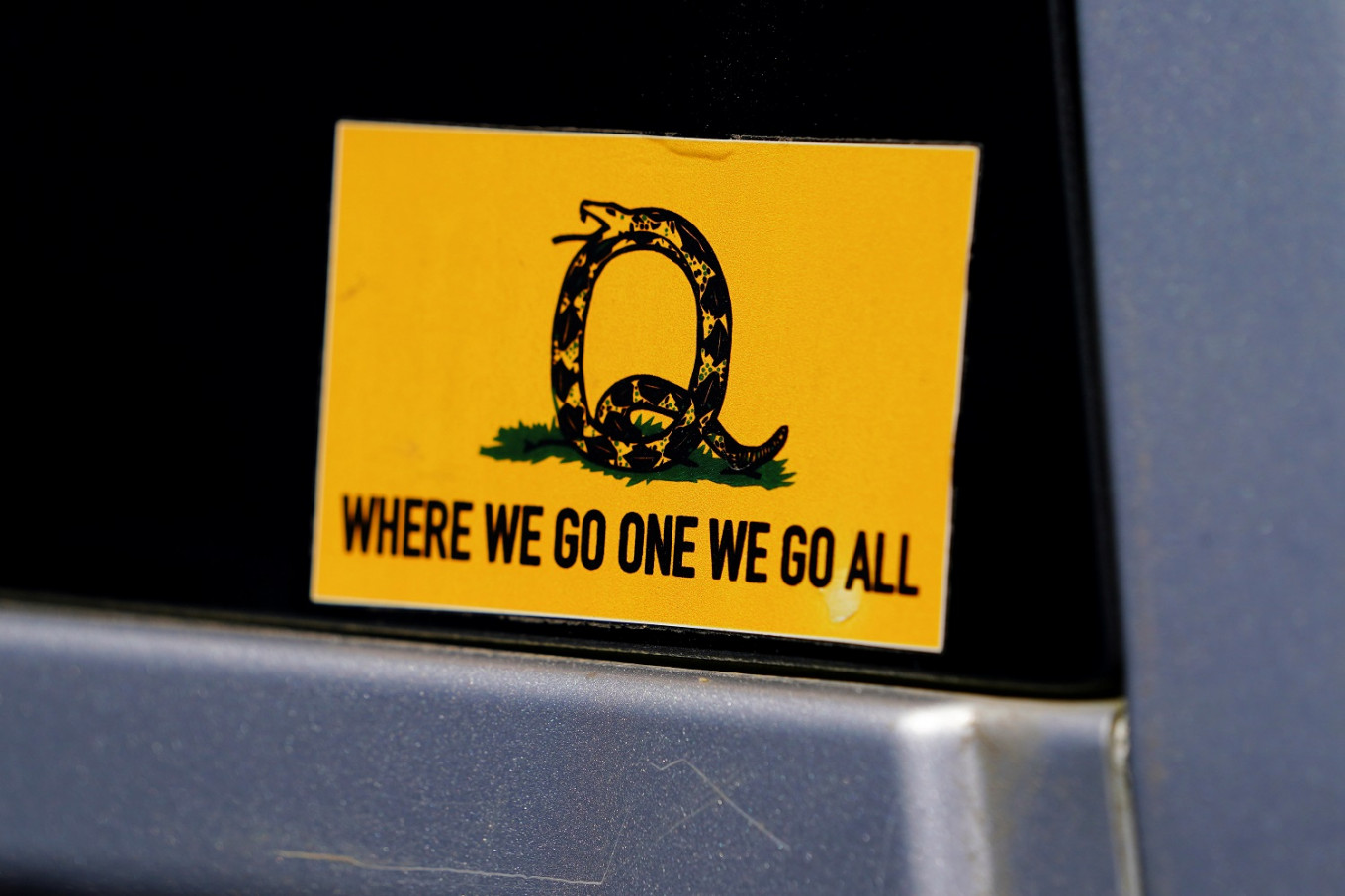Popular Reads
Top Results
Can't find what you're looking for?
View all search resultsPopular Reads
Top Results
Can't find what you're looking for?
View all search resultsWhat is QAnon and how are online platforms taking action on it?
Online marketplace Etsy Inc is removing all QAnon merchandise from its site, the latest in a series of platform crackdowns on the unfounded and sprawling conspiracy theory.
Change text size
Gift Premium Articles
to Anyone
O
nline marketplace Etsy Inc is removing all QAnon merchandise from its site, a spokeswoman told Reuters on Wednesday, the latest in a series of platform crackdowns on the unfounded and sprawling conspiracy theory.
What is QAnon?
QAnon followers espouse an intertwined series of beliefs, based on anonymous Web postings from "Q", who claims to have insider knowledge of the Trump administration.
A core tenet of the conspiracy theory is that US President Donald Trump is secretly fighting a cabal of child-sex predators that includes prominent Democrats, Hollywood elites and "deep state" allies.
QAnon, which borrows some elements from the bogus "pizzagate" theory about a pedophile ring run out of a Washington, D.C., restaurant, has become a "big tent" conspiracy theory encompassing misinformation about topics ranging from alien landings to vaccine safety.
Followers of QAnon say a so-called Great Awakening is coming to bring salvation.
Read also: Twitter takes down QAnon conspiracy theorist accounts
How has it spread online?
The "Q" posts, which started in 2017 on the message board 4chan, are now posted on 8kun, a rebranded version of the shuttered web board 8chan.
QAnon has been amplified on Twitter, Facebook, Instagram and YouTube, the video streaming service of Alphabet Inc's Google.
Media investigations have shown that social media recommendation algorithms can drive people who show an interest in conspiracy theories toward more material.
A report by the Institute for Strategic Dialogue (ISD) found that the number of users engaging in discussion of QAnon on Twitter and Facebook have surged this year, with membership of QAnon groups on Facebook growing by 120 percent in March.
Researchers say Russian government-supported organizations are playing a small but increasing role in amplifying the conspiracy theories.
QAnon backers helped organize real-life protests against child trafficking in August and were involved in a pro-police demonstration in Portland, Oregon.
QAnon also looks poised to gain a toehold in the US House of Representatives, with at least one Republican candidate who espouses its beliefs on track to win in the Nov. 3 elections.
Read also: Facebook, Instagram ban QAnon conspiracy-linked accounts
What are online platforms doing about it?
Twitter in July said it would stop recommending QAnon content and accounts in a crackdown it expected would affect about 150,000 accounts. It also said it would block QAnon URLs and permanently suspend QAnon accounts coordinating abuse or violating its rules.
Facebook Inc this week stepped up its earlier actions against QAnon by saying it would remove any Facebook pages, groups and Instagram accounts "representing" QAnon. In September, it also banned Facebook ads that praised or represented militarized social movements and QAnon.
A spokeswoman for the short-form video app TikTok said QAnon content "frequently contains disinformation and hate speech" and that it has blocked dozens of QAnon hashtags.
A Reddit spokeswoman told Reuters the site has removed QAnon communities that repeatedly violated its rules since 2018, when it took down forums such as r/greatawakening.
A YouTube spokeswoman said it has removed tens of thousands of Q-related videos and terminated hundreds of Q-related channels for violating its rules since updating its hate speech policy in June 2019.
YouTube also said it reduces its recommendations of certain QAnon videos that "could misinform users in harmful ways." It does not have a specific ban on monetizing QAnon content. ISD researchers found that about 20 percent of all QAnon-related Facebook posts contained YouTube links.
E-commerce site Etsy said it was removing all QAnon merchandise from its marketplace. A review of Amazon.com Inc and Ebay Inc showed sellers listing QAnon-branded items including books, face masks, T-shirts and hats.
Amazon and Ebay did not immediately respond to questions about whether they were taking specific actions against QAnon products.











